In the snap presidential election and televised roundtables, candidates frequently sidestepped direct responses to cultural and political issues like the hijab and freedom of speech.
Instead, they relied heavily on economic promises, often veering from specifics.
The presidential hopefuls consistently addressed pressing issues by oversimplifying them, emphasizing popular economic ideals with figures that were not always precise.
This approach was criticized by former government officials of the Islamic Republic, who argued that candidates tended to blame the Iranian people for current challenges rather than holding officials accountable.
All six qualified candidates have made various promises to different segments of the population.
These pledges include delivering meat, distributing gold and oil revenues directly to households, raising salaries to improve teachers' livelihoods, and even providing free petrol.
Some promises echo the grand commitments of the 1979 revolution, such as free water and electricity, which haven't been realized in 45 years.
However, beyond the impracticality of fulfilling these promises lies the potential for severe economic repercussions that could worsen Iran's current economic challenges.
The candidates' tendency towards vague statements and their failure to offer specific solutions to Iran's most pressing economic issues have left both the public and economic experts perplexed.
Many experts have criticized the candidates for their apparent lack of economic knowledge, with some suggesting that they may not even be familiar with Iran's 7th Development Plan.
Economic expert Mohsen Mohammadi said, "Given that most candidates lack economic expertise, their focus has been more on identifying issues rather than proposing viable economic solutions, often emphasizing sanctions as a key factor in Iran's political economy."
He added, "Some candidates' programs and statements during debates are inconsistent with their past performances in office.
"It wouldn't be unreasonable to suggest that some candidates may not have thoroughly reviewed the 7th development plan."
The candidate's failure to provide clear answers to experts' inquiries, their tendency to veer off-topic, and occasional contradictions have obscured their economic policies and outlooks.
None of the candidates have delved into specifics regarding critical issues such as inflation, capital market stability, and banking system imbalances.
Instead, they have broadly asserted goals like achieving 8 per cent economic growth and reducing inflation without offering credible strategies for achieving these targets.
Economic expert Mohammad Hassan Malihi has expressed concern over the lack of intellectual coherence in the candidates' economic discourse, saying, "It's unclear if there's any economic theory underlying some of their statements. What are the candidates' intellectual foundations?"
The conflicting economic narratives presented by the candidates have further confused experts about their economic philosophies and proposed methodologies for addressing economic challenges.
Malihi observes that their approaches are populist rather than practical or specialized.
Moreover, the election debates were marked by candidates attacking each other's past performances without offering substantive plans or solutions for the future.
This trend has drawn criticism from domestic media outlets like the Ettelaat newspaper.
The debates also brought to light unresolved financial scandals, such as the contentious Crescent contract, where accusations among candidates implicated high-ranking officials who have remained in influential positions without facing accountability.
For instance, Bijan Namdar Zanganeh, accused in the Crescent case by the hardline Front of Islamic Revolution Stability, continued to serve as oil minister in subsequent governments despite the allegations.
Furthermore, the debates were characterized by repetitive statements and positions, lacking innovation or fresh insights.
Saeed Jalili: Incomprehensible
Saeed Jalili's speech style was described by Behnam Samadi, an economic expert, who said, "Mr. Jalili! I understand what you are saying, but I don't get it."
Jalili was notorious for delivering two-hour speeches that often lacked substance.
His debates were characterized by vague generalizations that seldom addressed the questions posed, with disjointed sentences that left listeners struggling to discern the coherence between his opening and closing remarks.
Masoud Pezeshkian: Quoting the Quran and Nahj al-Balagha
Masoud Pezeshkian, supported by reformists, frequently deflected accountability by urging questioners to solve problems themselves.
He emphasized adherence to the leadership and policies of Ebrahim Raisi, offering little innovation or new ideas during debates and roundtables.
Pezeshkian's persistence in using lengthy Arabic quotations from the Quran and Nahj al-Balagha, despite criticism from his audience and students, became a hallmark of his speeches.
Alireza Zakani: Promises and Controversies
Alireza Zakani, initially aligned with Saeed Jalili and Mohammad Bagher Ghalibaf, garnered attention for his populist promises which often stirred public scepticism.
Some domestic media outlets labelled him as a "destroyer" who made unrealistic pledges to undermine his rivals.
In response to Zakani's pledges, critics, including veteran Iranian economic activist Akbar Turkan.
Amirhossein Ghazizadeh Hashemi: Gaffes and Misstatements
Amirhossein Ghazizadeh Hashemi, a presidential contender who withdrew two days before the election, was noted for frequent statistical errors and economic missteps during his debates.
He staunchly advocated continuing Ebrahim Raisi's policies, often at the expense of misrepresenting statistics to criticize Rouhani's administration.
Hashemi claimed that Iran's economic situation had improved under Raisi's presidency, despite evidence suggesting otherwise.
Mostafa Pourmohammadi: Unusual Promise of Free Petrol
Mostafa Pourmohammadi's campaign focused heavily on advocating for the acceptance of FATF (Financial Action Task Force) standards and dealing with economic sanctions.
His discussions often pivoted to these topics, portraying FATF compliance as essential, despite practical obstacles.
Pourmohammadi's proposal of free petrol raised eyebrows for its impracticality, reminiscent of European consumption patterns, which seemed out of touch with Iran's economic realities.
Mohammad Bagher Ghalibaf: No Solution
The Speaker of Parliament and presidential candidate has primarily focused on criticizing economic policies, despite having played a role in their approval.
He advocated for attracting foreign investment while also emphasizing the importance of preserving national dignity in the face of American sanctions.
This approach appears contradictory and lacks coherence.
Ghalibaf claimed that improving people's livelihoods and housing is his top priority.
He frequently stressed the urgency of stabilizing Iran's economy, eradicating poverty, and reducing unemployment.
However, he has yet to propose concrete solutions to these pressing issues.












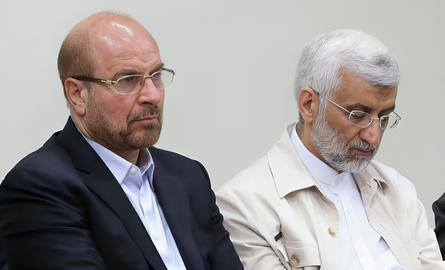






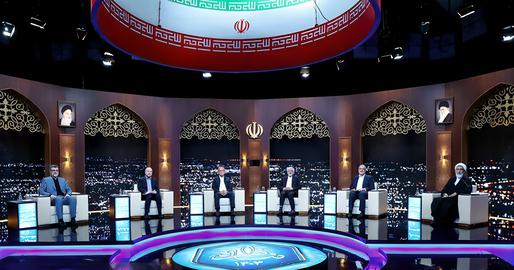
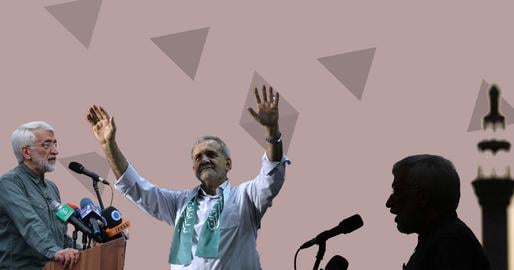
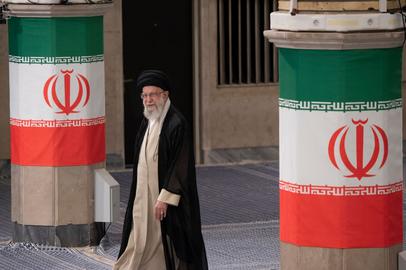

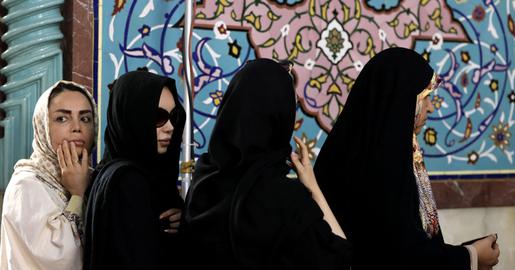



comments